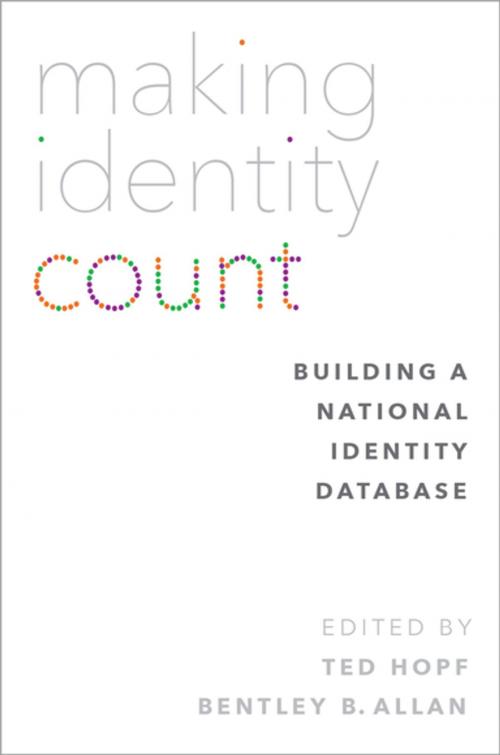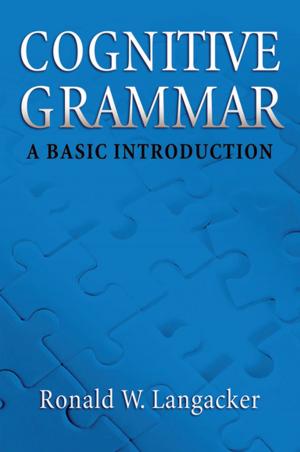Making Identity Count
Building a National Identity Database
Nonfiction, Social & Cultural Studies, Political Science, Politics, Practical Politics, History & Theory| Author: | ISBN: | 9780190602833 | |
| Publisher: | Oxford University Press | Publication: | April 6, 2016 |
| Imprint: | Oxford University Press | Language: | English |
| Author: | |
| ISBN: | 9780190602833 |
| Publisher: | Oxford University Press |
| Publication: | April 6, 2016 |
| Imprint: | Oxford University Press |
| Language: | English |
Constructivism, despite being one of the three main streams of IR theory, along with realism and liberalism, is rarely, if ever, tested in large-n quantitative work. Constructivists almost unanimously eschew quantitative approaches, assuming that variables of interest to constructivists, defy quantification. Quantitative scholars mostly ignore constructivist variables as too fuzzy and vague. And the rare instances in which quantitative scholars have operationalized identity as a variable, they have unfortunately realized all the constructivists' worst fears about reducing national identity to a single measure, such as language, religion, or ethnicity, thereby violating one of the foundational assumptions of constructivism: intersubjectivity. Making Identity Count presents a new method for the recovery of national identity, applies the method in 9 country cases, and draws conclusions from the empirical evidence for hegemonic transitions and a variety of quantitative theories of identity. Ted Hopf and Bentley B. Allan make the constructivist variable of national identity a valid measure that can be used by large-n International Relations scholars in a variety of ways. They lay out what is wrong with how identity has been conceptualized, operationalized and measured in quantitative IR so far and specify a methodological approach that allows scholars to recover the predominant national identities of states in a more valid and systematic fashion. The book includes "national identity reports" on China, the US, UK, Germany, France, Brazil, Japan, and India to both test the authors' method and demonstrate the promise of the approach. Hopf and Allan use these data to test a constructivist hypothesis about the future of Western neoliberal democratic hegemony. Finally, the book concludes with an assessment of the method, including areas of possible improvement, as well as a description of what an intersubjective national identity data base of great powers from 1810-2010 could mean for IR scholarship.
Constructivism, despite being one of the three main streams of IR theory, along with realism and liberalism, is rarely, if ever, tested in large-n quantitative work. Constructivists almost unanimously eschew quantitative approaches, assuming that variables of interest to constructivists, defy quantification. Quantitative scholars mostly ignore constructivist variables as too fuzzy and vague. And the rare instances in which quantitative scholars have operationalized identity as a variable, they have unfortunately realized all the constructivists' worst fears about reducing national identity to a single measure, such as language, religion, or ethnicity, thereby violating one of the foundational assumptions of constructivism: intersubjectivity. Making Identity Count presents a new method for the recovery of national identity, applies the method in 9 country cases, and draws conclusions from the empirical evidence for hegemonic transitions and a variety of quantitative theories of identity. Ted Hopf and Bentley B. Allan make the constructivist variable of national identity a valid measure that can be used by large-n International Relations scholars in a variety of ways. They lay out what is wrong with how identity has been conceptualized, operationalized and measured in quantitative IR so far and specify a methodological approach that allows scholars to recover the predominant national identities of states in a more valid and systematic fashion. The book includes "national identity reports" on China, the US, UK, Germany, France, Brazil, Japan, and India to both test the authors' method and demonstrate the promise of the approach. Hopf and Allan use these data to test a constructivist hypothesis about the future of Western neoliberal democratic hegemony. Finally, the book concludes with an assessment of the method, including areas of possible improvement, as well as a description of what an intersubjective national identity data base of great powers from 1810-2010 could mean for IR scholarship.















